Iron And Wine - Interview
by Lisa Torem
published: 21 / 1 / 2011
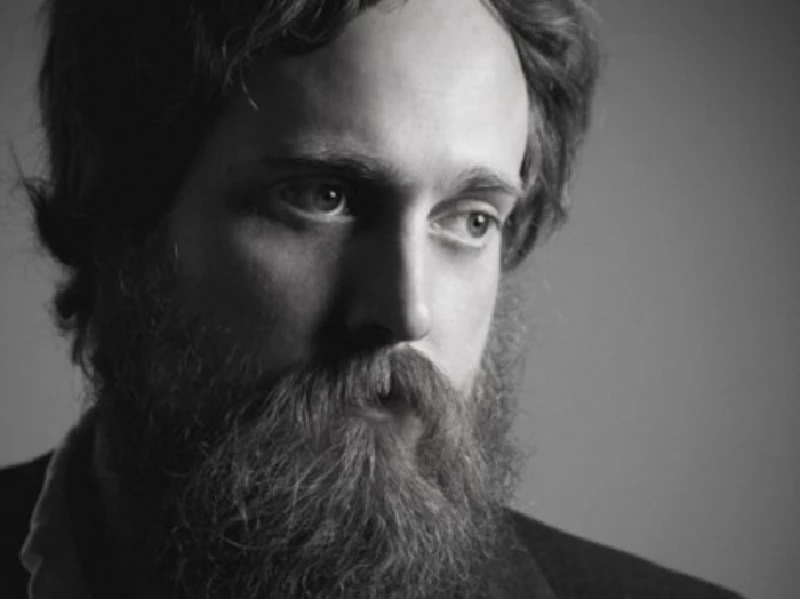
intro
Lisa Torem chats to Sam Beam from Americana act Iron and Wine about his songwriting career and his group's critically acclaimed latest album, 'Kiss Each Other Clean'
Samuel Beam aka Iron and Wine has been called Jesus and a song whisperer. The bearded, faded-denim clad, singer-songwriter, born in South Carolina, who was formerly a film student, then professor in Miami, and now resides outside Austin, Texas, never expected the level of success he has achieved, but a truck load of talent and serendipity derailed any plans of quiet anonymity. Apparently, Beam was destined to achieve ‘Such Great Heights’. Beam strummed his guitar and wrote tunes for seven years before his bare-bones demo passed through the hands of Michael Bridwell (Band of Horses) who passed it on to 'Yeti' magazine editor Mike McGonigal. It was the original tune ‘Dead Man’s Will’ that excited him. Sub Pop Records executive Jonathan Poneman signed Iron and Wine up in 2002 and then the debut 'The Creek Drank the Cradle' was released. It was awash with whimsical titles like ‘Lion’s Mane’ and ‘The Rooster Moans’ which belied the fact that hard core imagery of urban grit and southern flavorings floated through the simply, produced verses. ‘Upward Over the Mountain’ and ‘Cinder and Smoke’ conjured up images of unsung and moving metaphorical and physical places. Sure, critics referred to Beam’s first recordings as stark; these straight-forward sonnets would be considered “under-produced” by the standards of the new millennium, yet the thematic content and mood remained consistently rich and emotive. “Our Endless Numbered Days” went steps further in revealing Beam’s intense perspective. “Papa died smiling wide as the ring of a bell,” he sang, in ‘Sodom, South Georgia.’ The detailed narratives continued to flourish in the subtle ballad, ‘Passing Afternoon’ and seemingly effortless swirls of guitar shone through ‘Naked as we Came’ – an intimate look at a sacred love affair. “I want your flowers like babies want God’s love,” he sings, in the gorgeous ‘Fever Dream.’ And, in the biting grunt of ‘Teeth in the Grass,’ Beam teeters away from softness, fleshing out his human palette, Chicago producer Brian Deck stepped aboard the Iron and Wine trajectory for several projects, becoming a good friend and musical colleague, and several years later “The Shepherd’s Dog” appeared, illustrating more of Beam’s leap of faith in his increasingly growing audience. This album provided more contrasts: ‘Boy With a Coin’ had a hypnotic, rhythmic gallop and juxtaposed the soaring vocal-driven ‘Flightless Bird, American Mouth.’ Iron and Wine’s legacy was becoming his soothing lullaby of a voice, image-filled lyrics that appeared to flow from biblical texts or beat poems, and an almost apologetic demeanour; the unassuming, song craftsman, whose finger picking recalled the frailty and innocence of Simon and Garfunkel and whose sotto voce could lull a restless baby to sleep. Still, he performs without fanfare or gimmickry; the quintessential, accidental rock star. Iron and Wine has recently completed “Kiss Each Other Clean’, currently being promoted by 4AD, in which Beam adds layers of texture to songs that are just as meaningful as those that preceded it. Still, it’s fascinating to see how his well-crafted visions do when done up with striking horns and ambient sounds. The fierce imagery stays and so does his sensitive antennae for the world around him. A family man, a husband to an artistic wife and a father to a handful of daughters, Sam Beam has lots to say about the creative process, but he also talks to Pennyblackmusic about the art of collaboration and his take on current and past recordings PB: Was it fun working on ‘Kiss Each Other Clean?’ SB: Yeah. We did it a while ago, actually (Laughs) so we finally put it out. Yeah, it’s always a fun feeling to put stuff out and be able to move on. PB: In 2005 you recorded an EP called ‘Woman King’. There were some beautiful lyrical references regarding impressions of women on that project, for example: “There is light in my lady’s house/She is more than a thousand names” and “a hundred years, a hundred more/Someday we may see a woman king; sword in hand.” What prompted you to record that collection? SB: Well, I mean the songs came about individually. I never really sit and write records. You just kind of keep working all the time and I noticed I had songs with these women characters and I thought it was kind of an easy way to put songs together. It’s hard to find – it’s not hard (Laughs) – it’s quite a bit of work to see how songs work the best together because they’re written so separately. You try to find some little through lines that work together, some loose thematic things you like, to have some hook to hang your hat on like the woman character’s thing. PB: Have you been inspired by contemporary female singer-songwriters? SB: Yeah, songwriters, poets, novelists, film makers and women in my own life. They offer an interesting perspective. PB: How different is it? SB: It’s different from mine because I’m not a woman. They’re certainly worth appreciating. PB: There is a lot of symmetry in the way you create. 'Iron and Wine', 'Cinder and Smoke', 'Sea and the Rhythm' giving your work a sense of serenity. Did you set out to create these images or is that the rhythm of how your mind works? SB: I don’t know. I guess so. I mean, I always try to show both sides of the coin, you know? PB: 'Boy With a Coin'? SB: (Laughs). Yeah, boy with a coin. For any image there are so many different perspectives and it’s fun to play with; rarely do they actually have a moral weight, but we attach a moral weight to them. So, it’s fun to see how much meaning, good and bad, or whatever, you can wring out of an image or a thing that happens or any dramatic situation. So, in that sense, yeah, I guess there is a certain amount of symmetry, yin and yang, all the time and then you try to push it forward and make the recording as asymmetrical, just to make it feel human (Laughs). PB: Nietzsche said, “A thought, even a possibility can shatter and transform us.” Is that true? SB: (Laughs). I haven’t thought about Nietzsche for a while. Yeah. It sounds like that description. I just saw that movie, ‘Inception’ where they’re trying to plant ideas in peoples’ minds and that’s the most dangerous thing, but it makes sense. I can’t argue with it. It’s hard to believe something, an idea you can really get behind and believe. They’re hard to come by so they’re very powerful. PB: So, imagine Michelangelo waking up and staring at a slab of marble. He’s got to make something beautiful out of it. Is the creative process, regardless of the medium, ever daunting? SB: I guess you could look at it that way. It doesn’t feel quite as inspiring as Michelangelo (laughs). But, you have a certain amount of creative energy and I like to work at it. I like to feel the reward of putting a lot of work into something whether it works out the way you thought it would or not. Right now, I have a certain amount of creative energy and right now it’s going into songs. But, at the same time, it’s a lot less inspiration, most of the time, then it is the craft. You get into the reworking, like any kind of writing. It’s mostly rewriting and editing and shaping things once you have a bare kernel of inspiration, which, when it comes around it’s great, but it doesn’t come around very much (Laughs). PB: When you collaborated with Calexico (’In the Reins’ project-Ed) was that liberating to join forces with other artists or did you find it stifling? SB: No, I learned a lot. It wasn’t that I was resisting collaborating with people before; I just didn’t have a reason to do it, I was just doing music as a hobby, I didn’t have a lot of experience with it. It was very freeing. It was wonderful to understand how to form a relationship with other musicians, that is a relationship of trust and how important that is. I mean to give your music a certain amount of life. There are a lot of musicians who can translate what’s in their head and it’s wonderful. But, I find, most recently, that I enjoy being surprised by something that I didn’t think I could come up with or playing with other people that play very differently than me; that always surprises me. It makes it like a living, collaborative thing. PB: The ‘Boy with a Coin’ video was intriguing because the visuals seemed to be based on the rhythm of the song, not the lyrics. How did that project come about? SB: I had seen some of Lauri’s animation stuff (Lauri Faggioni/director/choreographer-Ed). She worked with Michel Gandry on his videos and movies so she did a great video for Devendra Banhart. She did a wonderful, little simple animation for one of his songs so I thought it would be fun to have her do something and she came to the table with the dancers. A film maker named Carlos Saura, I think he is from Spain, did a flamenco trilogy of movies about flamenco dancers (Carlos Saura’s 'Flamenco Trilogy', 1986-Ed) and she lifted some of the scenes directly from his movies. But, I liked the idea because I like throwing a bunch of archetypes from different genres, signature sounds and signature rhythms and things from different genres, and I like to throw them all in the soup and stir it up and see what you get. So, it was fun to have that kind of song which is such a messy soup as it is and throw another cultural dance into it. It was fun. PB: After being a film professor and being behind the camera for so long, then making a career as a performing songwriter, do you find that you now enjoy being on stage? SB: I do. I’ve learned to like it. I’ve learned lots of things. I still like making things a lot more than I do performing. I’m not hungry for attention that way. I like making things, so recording is still what I enjoy the most. But, I’ve definitely learned over the years to enjoy carrying over the creative process out of the studio and on to the stage. You don’t stop making a song in the studio; you keep the creative process going through the tour. You keep taking the song and involving the song so it’s not just the performance for me; it doesn’t succeed or fail in whether we do it right or not. It’s really about what we make that night or what we make this week. PB: In ‘Kiss Each Other Clean’ it seems you’ve ventured into some new terrain. Take ‘Monkey’s Uptown’ with its synth effects and both ‘Big Burned Hands’ and ‘Me and Lazarus’ in terms of that big, horn sound. Were those instrumentals in the original plan? SB: I wouldn’t say I planned to go where I did. It’s hard to say what we’ll do next. I thought it was really fun. I love the idea of a real organ sound, an acoustic guitar and an acoustic piano; these kind of things. You know, side by side with these synthetic sounds; the sonic contrast is fun and the horns have so many different connotations as far as with its association with jazz and afro-pop, R & B horn sections and all these things. It’s fun; sort of loaded dice to play with. PB: Kristen Stewart specifically chose ‘Flightless Bird, American Mouth’ for the prom scene in the film Twilight. This film has been quite controversial with the parents; some believing it’s just another fantasy film and others thinking their daughters will run off and kill themselves for a strange, pale guy. How did you feel about the film and were you satisfied with how your music was used? SB: I didn’t think too much about it to be blunt. I’ve been on the other side of trying to get music licensed for a movie and it’s really hard. I was trying to make it easy. I wasn’t familiar with the book when that one came across the desk. It was fun and then as things progressed some of the record labels said this might be a big deal (Laughs) and then it did end up being a big deal; an amazingly popular movie. My daughter still hasn’t seen it. It’s not really that I’m trying to stay away from it. I don’t have enough time to watch the movies that I do want to watch, let alone a movie that I might watch. PB: You’ve been busy touring. SB: We did a little bit of touring in the fall in Europe and we’re getting ready to go back in a week or two; we’ll be back over there for a while. Can I backtrack on 'Twilight'? I do want to say I didn’t put a lot of foresight into it, but I don’t do a lot of soundtracks, so it is fun to collaborate in that way where people sort of borrow your song and apply it to their own work. I think that’s fun. I definitely do the same thing with sounds and borrow from other genres and other people’s work. I think it’s a fun way to collaborate my own way. I don’t mean to sound flippant about licensing songs. I just didn’t know much about vampires and it’s based on a vampire book (Laughs). PB: ‘Garden State’ also had a remarkable soundtrack and featured unique songwriting by artists such as Nick Drake. You appeared on the soundtrack but you did a cover tune. Why weren’t you asked to contribute an original? SB: I don’t know. I think Zach Braff, the director, just heard that song, ‘Such Great Heights', on the radio because we did a jingle for it. Ben Gibbard from the Postal Service asked me to do it when they were putting out the Postal Service record. He asked me to cover his song so we could put it on his B side. So, I said, "Cool song, sure, I’ll do it", and it was just out there and Zach heard it on the radio and thought it would work in his movie, I guess. PB: What makes a great melody? SB: Obviously, musically, a certain amount of dynamics or acrobatics are always fun. But, at the same time, John Lennon had some incredible melodies that only had two or three notes in them. It depends on how it works with the lyrics. I didn’t study music so the terminology is hard for me. It’s hard for me to communicate with a band. I don’t read music, so (Laughs) I really don’t have a grasp of the terminology but I can always recognize…it’s so subjective, too. PB: Are you a self-taught musician? SB: Yeah, as a hobby. PB: I hear a Celtic sound in your guitar work, a beautiful drone in many of your songs. SB: If there is, it’s an unconscious thing. Lots of Celtic stuff is really fun. There’s such a strong, story-song tradition. But, at the same time, I have to say there’s probably a lot of stuff mixed in there (Laughs). I’m just a thief from all over the place. PB: You chose Brian Deck as producer again, for the production of the new album. SB: We had already established a rewarding working relationship and he’s a good friend and a great idea board. ‘Nothing's Sacred’ – I mean, if you’re working on the creative process, you should be able to try anything so “nothing's sacred” is a mantra I like. PB: Thank you.
Picture Gallery:-
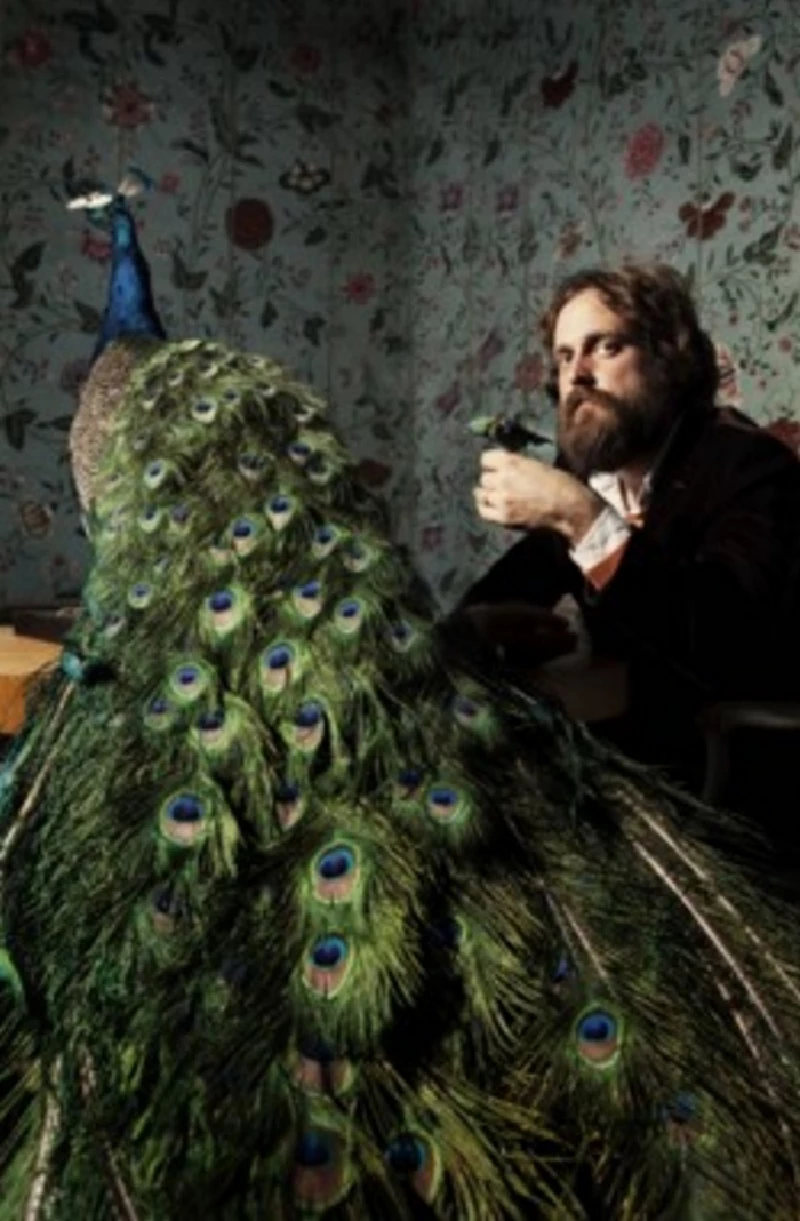
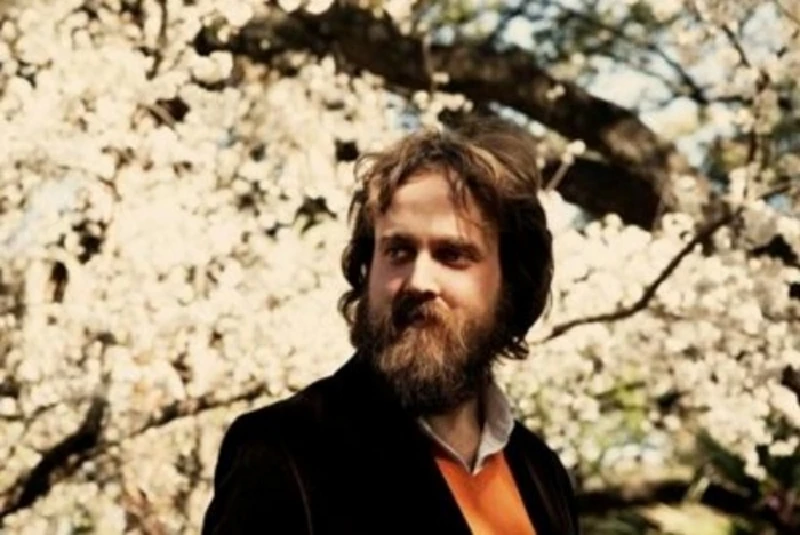
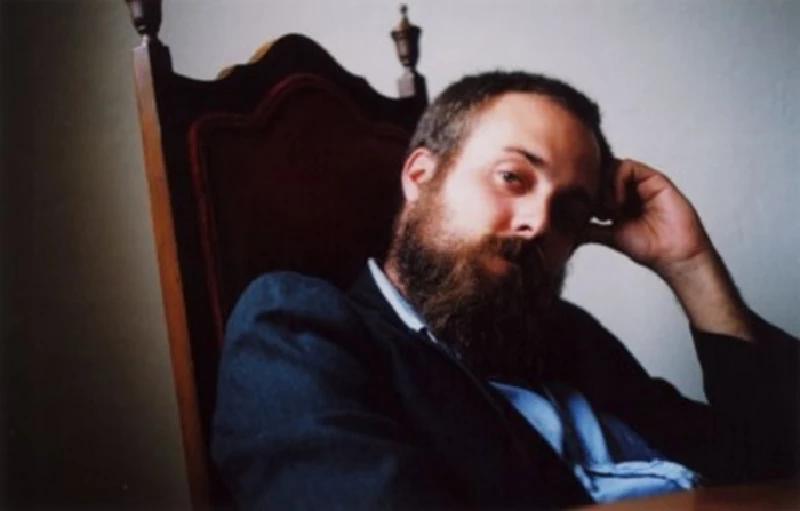

Visitor Comments:- |
| 397 Posted By: Myshkin, London on 07 Feb 2011 |
|
While I have to admit to knowing nothing about Iron and Wine, this article did make me want to go out and hear their/his music. Which is just about as good a compliment on someone's writing as I think you can get, so well done Lisa. He's a scary looking person though. Looks like some deranged offspring of some 19th century Russian author, if you ask me. Still, a lot of people would say I'm hairy too, so I can't talk.
|
live reviews |
|
Old Town School of Folk Music, Chicago, 1/2/2014 |
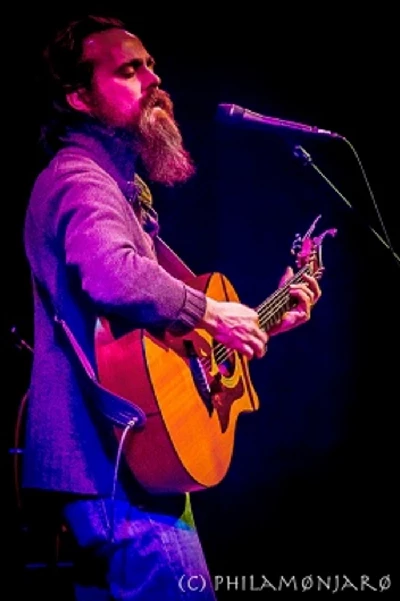
|
| Lisa Torem watches South Carolinian musician Sam Bean under his Iron and Wine nom de plume play a self-deprecating yet totally breathtaking two hour acoustic solo set |
| Roundhouse, London, 9/3/2011 |
| Shepherds Bush Empire, London, 30/10/2007 |
most viewed articles
current edition
Carl Ewens - David Bowie 1964 to 1982 On Track: Every Album, Every SongArmory Show - Interview with Richard Jobson
John McKay - Interview
Colin Blunstone - Thalia Hall, Chicago, 16/7/2025
Bathers - Photoscapes 1
Billie Eilish - O2 Arena, London, 10/7/2025
Loft - Interview
Visor Fest - Valencia, Spain, 26/9/2025...27/9/2025
Sir Tim Rice - Interview
Robert Forster - Interview
previous editions
Manic Street Preachers - (Gig of a Lifetime) Millennium Stadium, Cardiff, December 1999Heavenly - P.U.N.K. Girl EP
Beautiful South - Ten Songs That Made Me Love...
Oasis - Oasis, Earl's Court, London, 1995
Peter Perrett - In Dreams Begin Responsibilities Interview Part One
Boomtown Rats - Ten Songs That Made Me Love....
Coldplay - Wembley Arena. London, 16/8/2022
Prolapse - Interview
Trudie Myerscough-Harris - Interview
Pixies - Ten Songs That Made Me Love...
most viewed reviews
current edition
Davey Woodward - Mumbo in the JumboSick Man of Europe - The Sick Man of Europe
Lucy Spraggan - Other Sides of the Moon
Amy Macdonald - Is This What You've Been Waiting For?
Phew, Erika Kobayashi,, Dieter Moebius - Radium Girls
Suzanne Vega - Flying With Angels
Bush - I Beat Loneliness
Alice Cooper - The Revenge of Alice Cooper
Cynthia Erivo - I Forgive You
Blueboy - 2
Pennyblackmusic Regular Contributors
Adrian Janes
Amanda J. Window
Andrew Twambley
Anthony Dhanendran
Benjamin Howarth
Cila Warncke
Daniel Cressey
Darren Aston
Dastardly
Dave Goodwin
Denzil Watson
Dominic B. Simpson
Eoghan Lyng
Fiona Hutchings
Harry Sherriff
Helen Tipping
Jamie Rowland
John Clarkson
Julie Cruickshank
Kimberly Bright
Lisa Torem
Maarten Schiethart